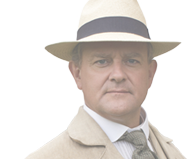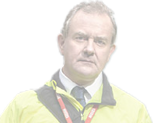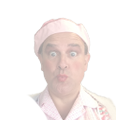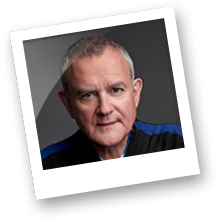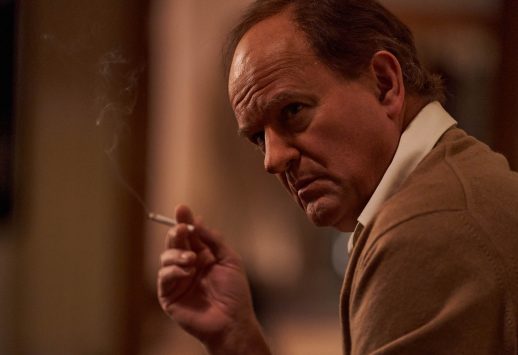Interview by James Fletcher for FilmInk
Downton Abbey’s Hugh Bonneville beautifully immerses himself in the real life role of much loved but deeply complex children’s author Roald Dahl in the new drama To Olivia.
The legacy of Welsh-born author Roald Dahl is something of a complicated tale, depending on which direction you wish to approach it. On the one side, the acclaimed author, poet, and screenwriter was responsible for some of the most inventive, complex modern fables of our time with Charlie And The Chocolate Factory, James And The Giant Peach, Fantastic Mr. Fox and The Witches continually reinterpreted and rebooted as stalwarts of modern pop-culture. On the other hand, Dahl himself was often seen as difficult and manipulative, an anti-social pariah of the English establishment.
Regardless of Dahl’s perceived contributions to literary tradition, the facts of his life leave little room for debate, often touching on the extraordinary – from his days as a WWII fighter pilot and intelligence officer, to penning scripts for Ian Fleming’s Bond adventure You Only Live Twice and Chitty Chitty Bang Bang – and the tragic; the loss of his beloved daughter, Olivia, and having his works decried as racist, anti-Semitic and misogynistic posthumously.
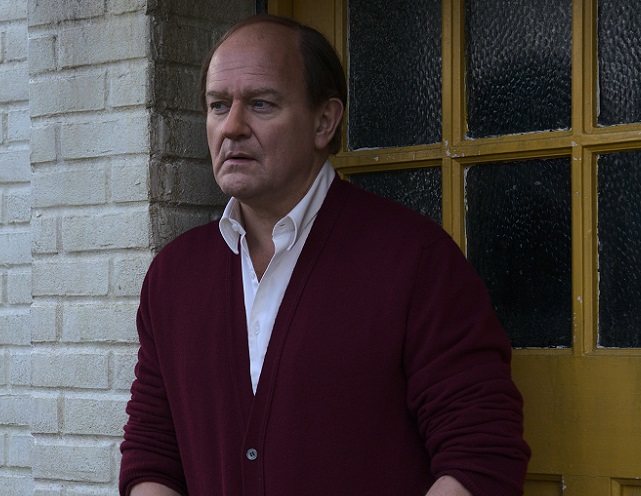
Hugh Bonneville in To Olivia
In the few times that Dahl has been portrayed on screen, it’s often as a support character to other central figures. But a new film from writer/director John Hay seeks to remedy the situation in the form of the poignant and emotionally charged To Olivia, a title that references the demise of Dahl’s seven-year-old daughter to complications arising from measles.
Based on the biography Patricia Neal: An Unquiet Life, from acclaimed Hollywood historian Stephen Michael Shearer, To Olivia chronicles what is arguably one of the darkest periods of Dahl’s life, as the overwhelming grief of losing his child fractures his marriage with the Oscar winning actress Patricia Neal (an Oscar winner for the Paul Newman classic, Hud).
Bringing an emotionally damaged Dahl to the screen is Hugh Bonneville, best known for his commanding performances as Robert Crawley in the popular Downton Abbey franchise, and whose stellar career also includes supporting roles in Notting Hill and the 2014 box-office hit Paddington and its subsequent sequel.
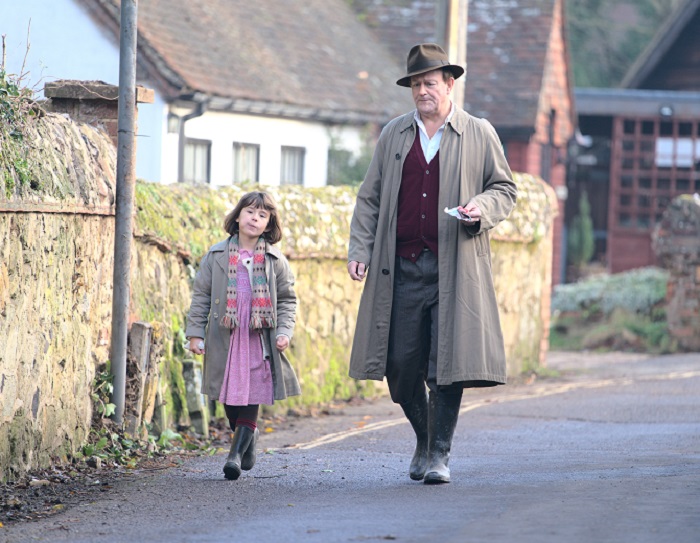
Hugh Bonneville with Darcey Ewart in To Olivia
“Well, it’s interesting,” explains Bonneville, informally clad in a distressed union jack t-shirt, and sporting a charmingly casual tone that would leave most of his onscreen personas frowning with consternate disapproval. “John Hay, who co-wrote and directed To Olivia, sent me the treatment several years ago, and it was originally going to be in a strand of tiny little biopic features on a very minor channel here in the UK. And I said, ‘It just strikes me that this is a much bigger story. The themes of it seem so much more universal than just being a specific little corner of a man’s life, of this couple’s life.’ This is a proper navigation of a profound experience that millions of us go through. There was a bigger tapestry to sew. So, after several years of shenanigans, which always happen with small independent movies regardless, we finally got there.”
Although no stranger to diverse roles and breathing life into eclectic characters, Bonneville admits that his understanding of Roald Dahl beyond the history books and the author’s own published works was superficial at best. But as he researched the man behind the legend, the portrait he saw coalescing before him was one of contradiction, complexity, and deep trauma. “As a kid, I’d read a couple of the books and as a teenager I loved his slightly dark short stories, but I didn’t know anything about the man,” elaborates Bonneville. “So obviously I began to read his autobiographical works Boy and Going Solo, his letters to his mother and all that. Eventually you begin to get a picture from his subjective point of view. Then you start reading more biographies. And then the book on which the film is based, Patricia Neal: An Unquiet Life, which is essentially a book about Patricia. You really begin to see a more 360 picture of a man who is cantankerous, spiky, and volatile… perhaps not the best dinner party guest because he could be quite explosive, or rather would just let off little grenades to see how people react.
As Bonneville discovered, Dahl was a true man of contradiction. “He was a difficult man but a great father,” the actor says. “There were just massive contradictions. He was a family man in the sense that he took great pride in taking his kids to school in the morning. Then he’d go into the little haven of his yellow hut and write for two hours, have lunch, two more hours, pick up the kids, and then have a good bottle of wine in the evenings. On the one hand, he was a family man, on the other hand, a cantankerous man. Difficult to live with, I’m sure, and explosive of temper sometimes. And yet when grief and tragedy struck, he rose to the occasion.
“Earlier in their life, their son Theo had a devastating accident in New York, and Dahl didn’t sit back and let the doctors get on with it. He was in there and famously created or helped to create a valve, because Theo had a brain injury. This valve would become a recognised medical instrument to relieve pressure on the brain. Even when, after the end of our story, Patricia had a stroke, he was very instrumental in bringing her back to her speech, and back to life through a very tough program. It was considered quite brutal by some, but actually then went on to be seen as a very useful therapy. And then of course, they both became very passionate advocates of the vaccine program for measles. So, in a man of huge contradictions and great imagination and talent, he was ultimately a father and a husband, and this little film tracks some of those parts.”
Marking one of Bonneville’s most emotional performances to date, the London born actor brings a true sense of gravity to his portrayal of Roald Dahl that is both earnest and compassionate, infusing the volatile author with a droll charm that allows the audience to navigate the emotional flux that hints at far deep-seated problems. “Depression strikes so many of us in different ways and to different degrees,” Bonneville offers. “And the journey of grief is, again, something that every human being will recognise to different degrees. It’s like a fader on a mixing desk. Some people go up to a big 10 at those points in their lives, or maybe they just go to a five or whatever. But no one has it exactly the same way or at exactly the same time. With Roald, John Hay and his co-writer [David Logan] charted it in a very clear way. There’s a heartbreaking little sequence where Roald – who was known as the king of breakfast, as he loved cooking the breakfast for the family – gets to a point where he can’t function anymore and just goes to bed, leaving his very young children in the kitchen with a boiling pan on a gas stove. You can see disaster looming, but he can’t cope. He’s just not able to function.”
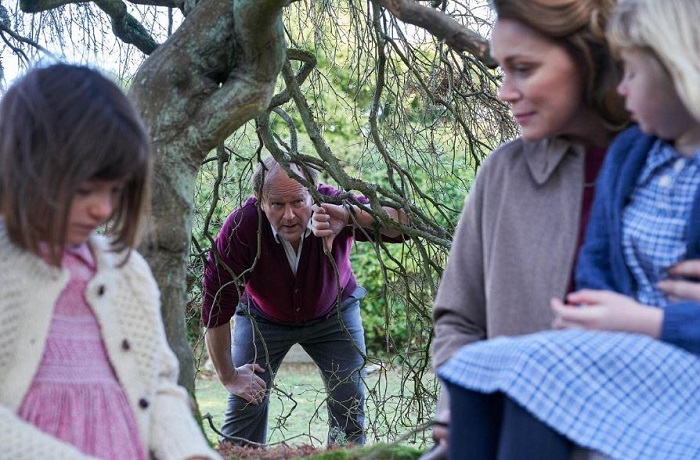
The themes of To Olivia resonated powerfully with Bonneville. “I found it very recognisable, having experienced grief and loss in my own family, with my parents and a brother,” the actor explains. “Sometimes the memory of someone, or an incident or a memory that you have with someone, can bring on great warmth, and then the next week, you might think of the same moment and just be in a vale of tears. To Olivia focuses perhaps on Roald’s journey through that, with the ebb and flow of depression and the reaction to grief. There’s no doubt that obviously Patricia experienced it as well.”
Playing opposite Bonneville as the formidable Hollywood icon Patricia Neal (Breakfast At Tiffanys, The Day The Earth Stood Still) is Keeley Hawes, one of the UK’s finest character actors, whose resume includes the likes of High-Rise, Death At A Funeral and Ben Wheatley’s 2020 thriller Rebecca. Sporting an American accent throughout the film, Hawes offers an effective counterpoint to Bonneville’s Dahl, as Neal struggles with her own insecurities as Hollywood actress.
With the role initially offered to Sarah Ferguson, who had to leave the project due to scheduling conflicts, Bonneville has nothing but praise for Keely Hawes’ ability to deliver an exceptionally layered study of Patricia Neal. “We had zero rehearsal for obvious reasons,” offers Bonneville with genuine sincerity. “She is probably the busiest actress in Britain. We were incredibly lucky that she could spare the time to come and work with us. As mentioned, I’d been working on this with John Hay for many years, and we’d been on the runway once or twice, and then had to taxi back to the aircraft hangar. And then finally, when Keeley came on board, we rode to take off.
“She is utterly brilliant in the role. Patricia Neal was far more well-known on the public stage than Roald was at the time of our story. James And The Giant Peach did not resonate with readers, but Patricia had become a Broadway success and was being courted by Hollywood. There was certainly professional envy from Roald. But she was also a devoted mum, just as he was a devoted dad. But that mixture of the public and the private is quite interesting, as is the tension between their own professions. And obviously, without ever impersonating, Keeley has this wonderful echo of this striking woman that Patricia was, and her accent was so spot-on. She captures the essence of this star who is also a mum, which is what Keeley is as well.”
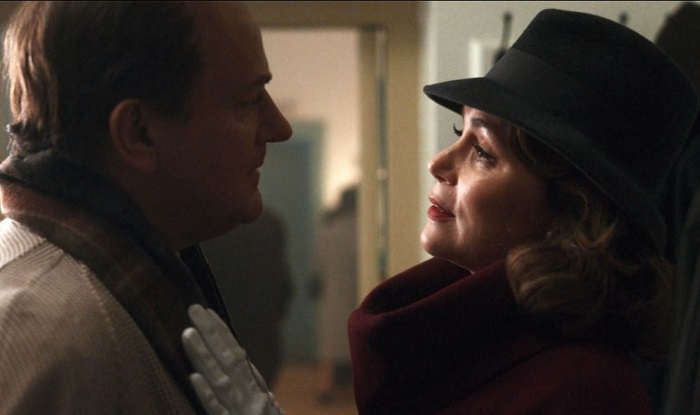
Hugh Bonneville and Keeley Hawes in a scene from To Olivia
Despite walking in the shoes of Roald Dahl for the film’s protracted journey to the screen, Hugh Bonneville is under no illusion that the famous author would share in the admiration that the actor’s performance has received. “He’d find me to be like a bit of irritating meat that he could chew on and spit out as I think he did many people,” Bonneville laughs. “He had a strong opinion of his own value. He had a chip on his shoulder that he wasn’t getting the recognition he deserved, and that his writing wasn’t being recognised. He felt that the establishment looked down on a children’s author. But his talent and his imagination and his legacy as a writer are indisputable. As a man though, to be really honest, I don’t know how much pleasure we’d have in each other’s company. Can I put it that way? But then, surprisingly, I’ve just been going through some old scrapbooks for various reasons. And I found a letter from him! I had no memory of writing to him. But it must have been during the 1980s. And I don’t know what I’d written to him about, but he wrote back, just one or two lines saying, ‘Thank you for your letter. It’s nice to hear from you.’ So on the one hand, there’s a guy who finds interacting with the public a bit of a nuisance, but then he’s also a guy who will write back to some pipsqueak and say ‘thanks’ for your letter. So you balance it out.”



